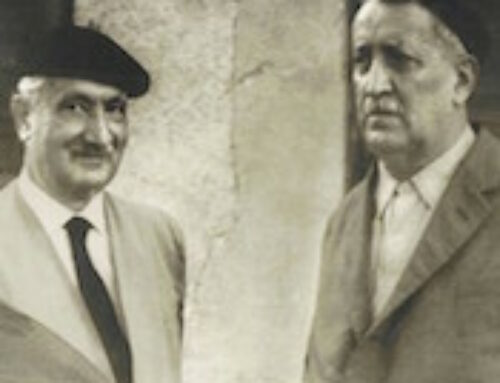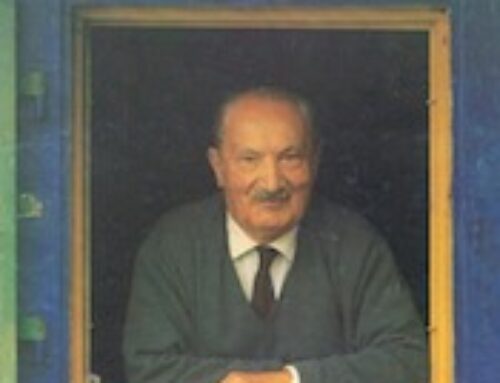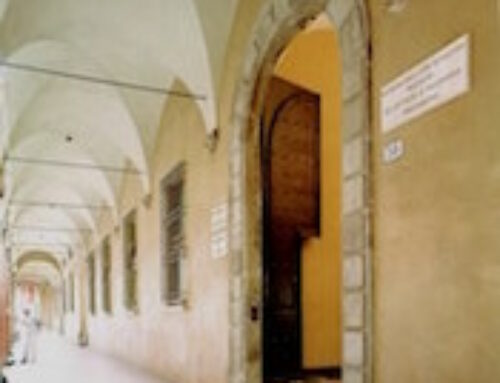Giugno 2006 – Loiano and Bologna, Italy
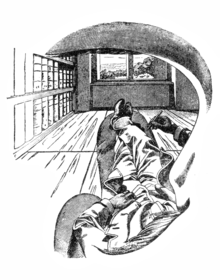 |
AM I MY BRAIN? OR A SENTIENT PROGRAM? AND, MOST OF ALL, WHO IS ASKING THIS QUESTION? |
 Click here to watch the photogallery Click here to watch the photogallery
|
| Sponsorships: |
      |
   |
Acknowledge to:
Tiziano Parise, SINTESIA, Anton Roy Fernandez, Avanzi L. s.r.l., Kion s.p.a.
Organizing Committee

“The meeting is organized by A.S.I.A. – Associazione Spazio Interiore e Ambiente – a non-profit intercultural association located in Bologna, Italy.
The association was founded in 1994 with the aim of promoting a spiritual research through eastern practices and western philosophy. Today ASIA has more than 800 permanent members deeply engaged in promoting their own spiritual quest.
Regular activities of the association open to the community include: courses of meditation, Yoga, Tai-chi, Shiatsu, Aikido and a philosophical laboratory.
From 1995 the association organizes the “Vacances de l’Esprit”, residential week-long programs in Italy during which academic experts in philosophy, science and cognitive sciences teach to a non-academic audience. In the year 2000, professionals and university fellows, members of the association, set an interdisciplinary study centre for scientific, philosophical and spiritual research on consciousness. During the last years the Study Centre has organized several seminars and conferences focused on Eastern-Western Philosophies”
Organizers of the meeting
Franco Bertossa, main responsible
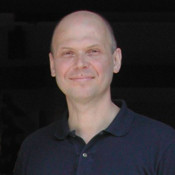 Franco Bertossa has been teaching Buddhist meditation and martial arts for thirty years. During these years he used to spend long periods in East countries with famous teachers of meditation, spiritual practice and martial arts.
Franco Bertossa has been teaching Buddhist meditation and martial arts for thirty years. During these years he used to spend long periods in East countries with famous teachers of meditation, spiritual practice and martial arts.
His main interest is to promote at the experiential level – not only conceptual – a dialogue and a comparison between Western philosophy and scientific thought on consciousness with the East methods for interior enquiring. He is founder and director of the ASIA Study Centre of Interdisciplinary Research on Consciousness, where this kind of studies are performed.
Franco Bertossa has been promoting for many years an intercultural/interreligious dialogue by organizing in ASIA long-lasting seminars with scholars of East and Western culture.
From 1995 he is also responsible for an original program for the popularisation of science and philosophy, the Vacances de l’Esprit, where well known speakers take part in every year.
The main theme developed by Franco Bertossa is “the implications of nihilism for the education of young people”. He has published papers and books on this and other themes like consciousness and knowledge.
Prof. Dr. Pier Luigi Luisi, science advisor
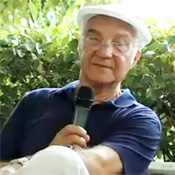 Prof. Dr. Pier Luigi Luisi has been Professor of Macromolecular Chemistry at the Swiss Federal Institute of Technology, one of the most prestigious technical universities of Europe, since the early 1980s. Earlier, he traveled and worked in Italy (where he got his degree), the United States, Sweden, and the former Soviet Union. His major interest in research is in the phenomena of self-organization of chemical systems and their emergent properties in the origin of life, aimed at an understanding of the basic scientific question :”what is life?” He is presently well known in the field of origin of life and origin of protocells, where he combines a hard-core experimental approach with the basic philosophical questions about minimal life. In this field, he is a follower of the theory of autopoiesis as proposed by Varela and Maturana and developed it further into the experimental chemical autopoiesis. Professor Luisi is also the founder of the Cortona-week, an initiative sponsored by the Swiss
Prof. Dr. Pier Luigi Luisi has been Professor of Macromolecular Chemistry at the Swiss Federal Institute of Technology, one of the most prestigious technical universities of Europe, since the early 1980s. Earlier, he traveled and worked in Italy (where he got his degree), the United States, Sweden, and the former Soviet Union. His major interest in research is in the phenomena of self-organization of chemical systems and their emergent properties in the origin of life, aimed at an understanding of the basic scientific question :”what is life?” He is presently well known in the field of origin of life and origin of protocells, where he combines a hard-core experimental approach with the basic philosophical questions about minimal life. In this field, he is a follower of the theory of autopoiesis as proposed by Varela and Maturana and developed it further into the experimental chemical autopoiesis. Professor Luisi is also the founder of the Cortona-week, an initiative sponsored by the Swiss
Federal Institute of Technology that since 1985 brings together science Ph.D students, artists and religion leaders to work on common projects and develop and common language. He is author of over 300 scientific papers and also author of literature books, including children’s books.
Roberto Ferrari, secretariat
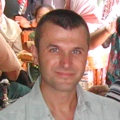 Roberto Ferrari is a biologist, trained in biochemistry and bioenergetic at the University of Modena, in enthomology and cognitive ethology at the University of Bologna, where he is presently based as a researcher at the Dept. of Biology. His research activity is on behaviour and distributed cognition of social Insects (Isoptera). He is an active member of ASIA Study Centre of Interdisciplinary Research on Consciousness from his foundation.
Roberto Ferrari is a biologist, trained in biochemistry and bioenergetic at the University of Modena, in enthomology and cognitive ethology at the University of Bologna, where he is presently based as a researcher at the Dept. of Biology. His research activity is on behaviour and distributed cognition of social Insects (Isoptera). He is an active member of ASIA Study Centre of Interdisciplinary Research on Consciousness from his foundation.
Ricardo Pulido, PhD., secretariat
Dr. Ricardo Pulido, is a Chilean psychologist. In 2001 he won the Republic of Chile President Fellowship and he moved to Bologna to realize a PhD in General and Clinical Psychology at the University of Bologna. Today is a postdoctoral fellow at the University of Bologna and an active member of the ASIA Study Centre of Interdisciplinary Research on Consciousness.
Francesca Ferri, PhD., secretariat
Francesca Ferri is a molecular biologist, trained in biotechnology at the University of Bologna.
At the same University she is currently working as a PhD student. Her activity is in the field of cancer research, more specifically her research is focused on regulation of gene expression and DNA repair. She is an active member of the ASIA Study Centre of Interdisciplinary Research on Consciousness.
Rosa Dominoni, Secretariat
Rosa Dominoni is graduated in Law at the University of Ferrara and from 2003 is an active member of the ASIA Study Centre of Interdisciplinary Research on Consciousness.
Description

Description of the Meeting
The interest in the study on consciousness has undergone a noteworthy burst in the last few years, both at the level of academic institutions (several Institutes for the Study of Consciousness have been grounded in the United States and Europe) as well at the level of lay public, with a plethora of articles, books and TV programs. The reasons are manifold, and even contradictory: on the one hand the emerging deep interest in spirituality, on the other hand the science reductionistic approach of studying the brain and its functions in terms of scanning tomography, EEG, and other modern, powerful techniques.
But- what is consciousness? Many would say that is a property of the mind. But- how is consciousness formed, where does it come from, and does each of us has his/her individual consciousness, or there is some level of a-personality in it?
And- what question do we ask ourselves about our own conscious experience and which is the deep reason which motivates this questioning? Whether and to what extent is possible – and/or justified – to translate our own experience of consciousness into the realm of science?
Many questions, that complicate the issue and make it somewhat confuse. And the confusion is increased by the fact that many different people, with different background, address the question of consciousness utilizing each time different languages, definitions, biases.
The main point of our meeting will be to go back to the roots of the problem, rediscover the “Primordial questions about consciousness” and share theories, practices and methods in order to possibly reach a common basic level of understanding among different philosophical, spiritual and scientific traditions, and acquire semantics and conceptual common denominators to face the consciousness inquiry. During the meeting, scientists, philosophers and religious of East and Western cultures will address to the following three basic questions:
- Which is the primordial question to be asked about our consciousness?
- What methodology have you used in your research on consciousness, and to what extent such research has answered your primordial question?
- Do you have a pragmatic proposal to make first person experience inter-subjectively shareable?
In addition to theoretical expositions, one of the most original and important aspect of the meeting will be the experiential working sessions (practice work), in which some of the speaker will integrate their conceptual reflections by sharing with the others their particular practice to a first person experience.
Practical aspects
In order to promote a deep dialogue, the meeting will not be the usual talk and run conference, but a workshop in which the participants could interact several times with each other and eventually mutually transform their original points of view. In this sense you may participate only by invitation from the organizing committee. You can of course apply for a place, writing to us, very shortly specifying your background and why you are interested, and we will be glad to answer, hopefully positively. The meeting will take place during the last week of June (Sunday 25th – Friday 30th) in Palazzo Loup, a wonderful village located in the Bologna Apennines (Loiano, Italy). Transportation to the place will be provided.
On Saturday July 1st, in Bologna, some of the speakers will make a tribute to Francisco Varela. The Chilean neuroscientist was one of the most important promoter of the philosophical, spiritual and scientific dialogue, and the first to be interested toward the contribute – for the comprehension of mind and human experience – of methods and knowledge coming from Eastern traditions. This is a public conference, everybody is welcome to attend!

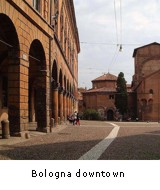
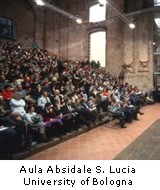
Speakers

In the list of speakers indicated below, there are well known Buddhist scholars, Christian scholars, Western philosophers, eastern philosophers and scientists. They have been selected in view of their vast experience in intercultural and interdisciplinar dialogues.
 Zentatsu Richard Baker Roshi
Zentatsu Richard Baker Roshi
Zentatsu Richard Baker-roshi was second abbot of Zen Center, serving from 1971 until 1983. He was instrumental in the purchase of Tassajara Zen Mountain Center and Green Gulch Farm. He was also the leading force in setting up Zen Center’s financial base of support, including Greens Restaurant at Fort Mason and Tassajara Bakery in San Francisco. In his teaching, Baker-roshi emphasized Zen’s yogic teachings and the relevance of Zen to contemporary philosophical and social issues. He is presently the spiritual head of Dharma Sangha, with locations in Crestone, Colorado, and the Black Forest of Germany.
Richard Baker-roshi is Abbot, Head Teacher, and founder of the Dharma Sangha centers in Europe and the United States. In the United States he lives at the Crestone Mountain Zen Center in Colorado; and in Germany, at the ‘Buddhistisches Studienzentrum im Johanneshof’ (Buddhist Study Center at Johanneshof) in the Black Forest.
He is the Dharma Successor of Shunryu Suzuki-roshi, the first Zen Master to establish residential and monastic practice for laypeople and monks in the West. In 1966, with and for Suzuki-roshi, Baker-roshi co-founded the Tassajara Zen Mountain Center in California, the first traditional Zen monastery outside of Asia.
From 1968 to 1971, he studied in Japan at Antaiji, Eiheiji, and Daitokuji Zen monasteries. He became Suzuki-roshi’s Dharma Heir in 1969 and was installed by Suzuki-roshi as the second Abbot of the San Francisco Zen Center in 1971.
Baker-roshi subsequently founded the Green Gulch Zen Practice Community and Farm in Marin County in California in 1972. In 1983, he founded the Dharma Sangha. He is currently finishing a book, Original Mind, the Practice of Zen in the West, to be published by Putnam, Riverhead Press.
 Franco Bertossa
Franco Bertossa
Franco Bertossa has been teaching Buddhist meditation and martial arts for thirty years. During these years he used to spend long periods in East countries with famous teachers of meditation, spiritual practice and martial arts.
His main interest is to promote at the experiential level – not only conceptual – a dialogue and a comparison between Western philosophy and scientific thought on consciousness with the East methods for interior enquiring. He is founder and director of the ASIA Study Centre of Interdisciplinary Research on Consciousness, where this kind of studies are performed.
Franco Bertossa has been promoting for many years an intercultural/interreligious dialogue by organizing in ASIA long-lasting seminars with scholars of East and Western culture.
From 1995 he is also responsible for an original program for the popularisation of science and philosophy, the Vacances de l’Esprit, where well known speakers take part in every year.
The main theme developed by Franco Bertossa is “the implications of nihilism for the education of young people”. He has published papers and books on this and other themes like consciousness and knowledge.
 Michel Bitbol
Michel Bitbol
Michel Bitbol is presently Directeur de recherché at the Centre National de la Recherche Scientifique, in Paris, France. He is based at the Centre de Recherche en Epistemologie Appliquee (CREA) in Paris He teaches the Philosophy of Modern Physics to graduate students at the University Paris I (Pantheon-Sorbonne). He was educated at several universities in Paris, where he received successively his M.D. in 1980, his Ph.D. in physics and biophysics in 1985, and his “Habilitation” in philosophy in 1997.
He worked as a research scientist from 1978 to 1990, specializing first in the hydrodynamics of the blood flow in arteries, and then in the microstructure of the red blood cell membranes studied by EPR and NMR techniques. From 1990 onwards, he turned to the philosophy of physics. He edited texts of general philosophy and of quantum mechanics by Erwin Schrödinger, and published a book entitled Schrödinger’s Philosophy of Quantum Mechanics (Kluwer, 1996).
He also published two books in French on quantum mechanics and on realism in science, in 1996 and 1998 respectively. More recently, he focused on the relations between the philosophy of quantum mechanics and the philosophy of mind. He published a book on that topic in French in 2000, and worked in close collaboration with Francisco Varela. In 1997 he was the recipient of an award from the Academie des sciences morales et politiques for his work in the philosophy of quantum mechanics He is presently learning some Sanskrit in order to get a better understanding of basic texts by Nagarjuna and Candrakirti, for a new philosophical project on the concept of relation in physics and the theory of knowledge.
 Joan Halifax Roshi
Joan Halifax Roshi
Joan Halifax Roshi is a Buddhist teacher, Zen priest, anthropologist, and author. She is Founder, Abbot, and Head Teacher of Upaya Zen Center, a Buddhist monastery in Santa Fe, New Mexico. She received her Ph.D in medical anthropology in 1973. She has lectured on the subject of death and dying at many academic institutions, including Harvard Divinity School and Harvard Medical School, Georgetown Medical School, University of Virginia Medical School, Duke University Medical School, University of Connecticut Medical School, among many others.
From 1972-1975, she worked with psychiatrist Stanislav Grof at the Maryland Psychiatric Research Center on pioneering work with dying cancer patients, using LSD as an adjunct to psychotherapy. After the LSD project, she has continued to work with dying people and their families and to teach health care professionals as well as lay individuals on compassionate care of the dying.
She is Director of the Project on Being with Dying and Founder and Director of the Upaya Prison Project that develops programs on meditation for prisoners. For the past twenty-five years, she has been active in environmental work. She studied for a decade with Zen Teacher Seung Sahn and was a teacher in the Kwan Um Zen School. She received the Lamp Transmission from Thich Nhat Hanh, and was given Inka by Roshi Bernie Glassman.
A Founding Teacher of the Zen Peacemaker Order, her work and practice for more than three decades has focused on applied Buddhism. Her books include: The Human Encounter with Death (with Stanislav Grof); Shamanic Voices; Shaman: The Wounded Healer; The Fruitful Darkness; Simplicity in the Complex: A Buddhist Life in America, Being with Dying, and Wisdom Beyond Wisdom (with Kazuaki Tanashashi).
 Nicholas Humphrey
Nicholas Humphrey
Nicholas Humphrey is a theoretical psychologist. He is school Professor at the London School of Economics and Professor of Psychology at the New School for Social Research. He is internationally known for his work on the evolution of human intelligence and consciousness. His interests are wide ranging: He studied mountain gorillas with Dian Fossey in Rwanda; was the first to demonstrate the existence of “blindsight” after brain damage in monkeys; proposed the now celebrated theory of the “social function of intellect”; and is the only scientist ever to edit the literary journal Granta.
His books include Consciousness Regained, The Inner Eye, A History of the Mind, Leaps of Faith, and The Mind Made Flesh. He has been the recipient of several honours, including the Martin Luther King Memorial Prize, and the British Psychological Society‚s book award.
 Thupten Jinpa
Thupten Jinpa
Thupten Jinpa was trained as a monk at the Shartse College of Ganden Monastic University, South India, where he received the Geshe Lharam degree. In addition Jinpa holds B.A. Honors in philosophy and Ph.D. in religious studies, both from Cambridge University. He taught for five years at Ganden and worked also as a research fellow in Eastern religions at Girton College, Cambridge University.
Jinpa has been a principal English translator to H.H. the Dalai Lama for nearly two decades and has translated and edited numerous books by the Dalai Lama including Ethics for the New Millennium, Transforming the Mind, and The World of Tibetan Buddhism. His own publications include works in both Tibetan and English, the most recent book being Self, Reality and Reason in Tibetan Philosophy.
Jinpa teaches as an adjunct professor at the Faculty of Religious Studies at McGill University, Montreal. He is currently the president of the Institute of Tibetan Classics and heads its project of critical editing, translation and publication of key classical Tibetan texts aimed at creating a definitive reference series entitled The Library of Tibetan Classics.
 Prof. Dr. Pier Luigi Luisi
Prof. Dr. Pier Luigi Luisi
Prof. Dr. Pier Luigi Luisi has been Professor of Macromolecular Chemistry at the Swiss Federal Institute of Technology, one of the most prestigious technical universities of Europe, since the early 1980s. Earlier, he traveled and worked in Italy (where he got his degree), the United States, Sweden, and the former Soviet Union. His major interest in research is in the phenomena of self-organization of chemical systems and their emergent properties in the origin of life, aimed at an understanding of the basic scientific question :”what is life?” He is presently well known in the field of origin of life and origin of protocells, where he combines a hard-core experimental approach with the basic philosophical questions about minimal life. In this field, he is a follower of the theory of autopoiesis as proposed by Varela and Maturana and developed it further into the experimental chemical autopoiesis. Professor Luisi is also the founder of the Cortona-week, an initiative sponsored by the Swiss
Federal Institute of Technology that since 1985 brings together science Ph.D students, artists and religion leaders to work on common projects and develop and common language. He is author of over 300 scientific papers and also author of literature books, including children’s books.
 Brother David Steindl- Rast
Brother David Steindl- Rast
David Steindl-Rast was born in Vienna, Austria, where he studied art, anthropology, and psychology, receiving an MA from the Vienna Academy of Fine Arts and a PhD from the University of Vienna. In 1953 he joined a newly founded Benedictine community in Elmira, NY, Mount Saviour Monastery, of which he is now a senior member. In 1958/59 Brother David was a Post-Doctoral Fellow at Cornell University, where he also became the first Roman Catholic to hold the Thorpe Lectureship, following Bishop J.D.R. Robinson and Paul Tillich. After twelve years of monastic training and studies in philosophy and theology, Brother David was sent by his abbot to participate in Buddhist-Christian dialogue, for which he received Vatican approval in 1967. His Zen teachers were Hakkuun Yasutani Roshi, Soen Nakagawa Roshi, Shunryu Suzuki Roshi, and Eido Shimano Roshi. He co-founded the Center for Spiritual Studies in 1968 and received the 1975 Martin Buber Award for his achievements in building bridges between religious traditions. Together with Thomas Merton, Brother David helped launch a renewal of religious life. From 1970 on, he became a leading figure in the House of Prayer movement, which affected some 200,000 members of religious orders in the United States and Canada. For decades, Brother David divided his time between periods of hermit’s life and extensive lecture tours on five continents. His books, such as Gratefulness, the Heart of Prayer and A Listening Hear ,The Music of Silence, The Ground We Share: Buddhist and Christian Practice, Words of Common Sense, have been translated into many languages. Brother David co-authored Belonging to the Universe (winner of the 1992 American Book Award), a dialogue on new paradigm thinking in science and theology with physicist, Fritjof Capra.
 Evan Thompson
Evan Thompson
Evan Thompson is Professor of Philosophy at the University of Toronto. He is the author of MIND IN LIFE: BIOLOGY, PHENOMENOLOGY, AND THE SCIENCES OF MIND (Harvard University Press, 2007), and with Francisco Varela and Eleanor Rosch, THE EMBODIED MIND: COGNITIVE SCIENCE AND HUMAN EXPERIENCE (MIT Press, 1991).
In addition to these books, he has published widely in the areas of cognitive science, philosophy of mind, philosophy of biology, and phenomenology. He is also a longtime participant in the dialogue between Buddhism and Western science.
Program

Organisms, those fascinating meshworks of selfless selves, no more, nor less than open-ended, multi-level circular existences, always driven by the lack of significance they engender by asserting their presence.
F.J. Varela, 1991
Sunday June 25th
| Afternoon | 13:00 | Welcome lunch |
| 15:30 | Introduction: P.L. Luisi and F. Bertossa |
|
| 16:00 | Discussion Panel (Chairman P.L. Luisi) Definitions and semantics issues in consciousness inquiry F. Bertossa, T. Jimpa and J. Halifax |
|
| 17:30 | Coffee Break | |
| 18:00 | Discussion Panel (Chairman P.L. Luisi) Definitions and semantics issues in consciousness inquiry R. Baker, Br. D. Steindl-Rast and M. Bitbol |
|
| 20:00 | Dinner |
Monday June 26th
| Morning | 07:00 | Practice offered by ASIA: “Searching for the locus of the witness” |
| 08:00 | Breakfast | |
| 09:30 | Discussion Panel (Chairman P.L. Luisi) Definitions and semantics issues in consciousness inquiry E. Thompson and N. Humphrey |
|
| 10:30 | Coffee break | |
| 11:00 | Panelist discussion | |
| 13:00 | Lunch | |
| Afternoon | 15:30 | Speaker intervention: Franco Bertossa |
| 16:30 | Experiential working session (I) | |
| 17:30 | Coffee break | |
| 18:00 | Open discussion (Chairman: R.Pulido) | |
| 20:00 | Dinner |
Tuesday June 27th
| Morning | 07:00 | Practice offered by ASIA: “Searching for the locus of the witness” |
| 08:00 | Breakfast | |
| 09:30 | Speaker intervention: M.Bitbol |
|
| 10:30 | Speaker intervention: N.Humphrey |
|
| 11:30 | Coffee break | |
| 12:00 | Open discussion (Chairman L. Calzà) | |
| 13:30 | Lunch | |
| Afternoon | 16:00 | Speaker intervention: T. Jimpa |
| 17:00 | Experiential working session (II) | |
| 18:00 | Coffee break | |
| 18:30 | Open discussion (Chairman: R. Pulido) | |
| 20:00 | Dinner |
Wednesday June 28th
| Morning | 07:00 | Practice offered by ASIA: “Searching for the locus of the witness” |
| 08:00 | Breakfast | |
| 09:30 | Speaker intervention: J. Halifax |
|
| 10:30 | Experiential working session (III) | |
| 11:30 | Coffee break | |
| 12:00 | Open discussion (Chairman: P.L. Luisi) | |
| 13:30 | Lunch | |
| Afternoon | Free |
Thursday June 29th
| Morning | 07:00 | Practice offered by ASIA: “Searching for the locus of the witness” |
| 08:00 | Breakfast | |
| 09:30 | Speaker intervention: E. Thompson |
|
| 10:30 | Speaker intervention: Br.D. Steindl-Rast |
|
| 11:30 | Coffee break | |
| 12:00 | Open discussion (Chairman: R.Ferrari) | |
| 13:30 | Lunch | |
| Afternoon | 16:00 | Speaker intervention: R. Baker |
| 17:00 | Experiential working session (IV) | |
| 18:00 | Coffee break | |
| 18:30 | Open discussion (Chairman: M.A.Falà) | |
| 20:00 | Dinner |
Friday June 30th
| Morning | 07:00 | Practice offered by ASIA: “Searching for the locus of the witness” |
| 08:00 | Breakfast | |
| 09:30 | Discussion panel: (Chairman: F. Bertossa) Intersubjectivity on consciousness inquiry Br.D. Steindl-Rast, M. Bitbol, N. Humphrey and E. Thompson |
|
| 11:00 | Coffee break | |
| 11:30 | Panelist discussion | |
| 13:30 | Lunch | |
| Afternoon | 16:00 | Small groups working session: General conclusions and future directions |
| 17:30 | Coffee break | |
| 18:00 | Plenary discussion (Chairman: P.L. Luisi and F. Bertossa) | |
| 20:00 | Dinner |
Saturday July 1st
| Morning | Free | |
| Afternoon | Public Conference in Bologna Francisco Varela’s Legacy R. Antonini, M. Bitbol, A. Cohen, J. Halifax, P.L. Luisi and E. Thompson |
Public conference
Francisco Varela’s Legacy
Public Conference
Saturday 1st July 2006 – 15.45
Aula Absidale S.Lucia – University of bologna – Via De’ Chiari 25/a
![]() Italiano
Italiano
“I hope I have seduced the reader to consider that we have in front of us the possibility of an open-ended quest for resonant passages between human experience and cognitive science. The price however is to take first-person accounts seriously as valid domain of phenomena. And beyond that, to build a sustained tradition of phenomenological examination that is almost entirely nonexistent today in our western science and culture at large.”
(F. Varela: Neurophenomenology, A methodological remedy for the hard problem)
Relators
Against the stream: Buddhist scientist Francisco Varela
Joan Halifax Roshi
Upaya Zen Center
Autopoiesis as the blue print of life
Proff. Dr. Pier Luigi Luisi
Dipartimento di Biologia
Università Roma3
Neurophenomenology: A science which turns its blind spot to advantage
Michel Bitbol, PhD
Centre National de la Recherche Scientifique
Chargé de cours à l’Université Paris I
Meditation and consciousness: A neurophenomenological approach
Evan Thompson, PhD
Department of Philosophy
University of Toronto
Round table discussion with all speakers: “Enaction and Interaction”
Opening Remarks, Prof. Riccardo Antonini (Consorzio Roma Ricerche)
Guest of honour
Amy Cohen-Varela
Francisco Varela
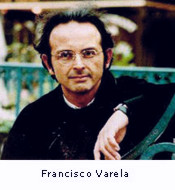 Francisco Varela (Santiago, 1946 – Paris, 2001) was a Chilean biologist and philosopher who introduce the concept of autopoiesis to biology. He is also a proponent of the embodied philosophy which claims that human cognition and consciousness can only be understood in terms of the physical structures in which it arises, namely the body, and the environment in which the body interacts. He made an impact on the neuroscience profession by introducing concepts such as neurophenmonology, based on writings of Husserl, and “first person science” in which observers apply scientifically verifiable methods for examining the nature of their own conscious experience.
Francisco Varela (Santiago, 1946 – Paris, 2001) was a Chilean biologist and philosopher who introduce the concept of autopoiesis to biology. He is also a proponent of the embodied philosophy which claims that human cognition and consciousness can only be understood in terms of the physical structures in which it arises, namely the body, and the environment in which the body interacts. He made an impact on the neuroscience profession by introducing concepts such as neurophenmonology, based on writings of Husserl, and “first person science” in which observers apply scientifically verifiable methods for examining the nature of their own conscious experience.
Previous Events

ASIA has already organized several activities to prepare the meeting:
April 25 – May 1st, 2006: Philosophical work-shop with Ryosuke Oashi, professor of Philosophy and Aesthetic at Osaka University , Japan, on the theme: “Phylosophy and Zen in the Philosophy School of Kyoto”.
December 20, 2005: Seminar with Michael Bitbol, research director at the Centre National de la Recherche Scientifique (Paris), on the theme “Epistemology and consciousness research”.
November 16, 2005: Conference with P. Luigi Luisi, professor emeritus of biochemestry at the University of Rome3, on the theme “Science and clinical application of meditation: a synthesis of the Mind & Life Institute conference at Washington DC (8-10 November, 2005)”.
October 9, 2005: Seminar with James Heisig, permanent research fellow of the Nanzan Institute for Religion and Culture and professor at the Faculty of Arts and Letter at the Nanzan University, on the theme “Philosophy School of Kyoto and the inter-cultural dialogue”.
May 14, 2005: “Heidegger-day: beyond nihilism”. Philosophical conference on the theme “surpassing nihilism in Martin Heidegger thought”. Presentators: Gianni Vattimo, professor of philosophy at the University of Turin, with the intervention “Could be the nihilism a value”; Franco Volpi, professor of philosophy at the University of Padova, on the subject “Philosophy as self-haling: Heidegger and pragmatic philosophy”; Carlo Sini, professor of philosophy at the University of Milan, with the intervention “Toward the truth: from interpretation to interpretation” and Franco Bertossa, founder director of ASIA, on the them “Angst and emptiness: nothingness between Heidegger and Buddhism”.
July 23 – 30, 2005: Philosophical work-shop with Thupten Jimpa, adjunct professor at the Faculty of Religious Studies at the McGill University of Montreal, on the theme “Buddhism and its protagonists : from the Buddha to Tsong Kapha”.
July 9 – 16, 2005: Scientific work-shop with Pier Luigi Luisi, emeritus professor at the University of Rome3, on the theme “The origin of life: from molecules to consciousness”.
Dicember 15, 2004: Scientific conference with Pier Luigi Luisi, professor at the University of Rome3, on “Francisco Varela: autopoesis and neurophenomenology”.
November 23 – 28, 2004: Philosophical work-shop with Thupten Jimpa, adjunct professor at the Faculty of Religious Studies at the McGill University of Montreal, on the theme “Nothingness in Nagarjuna and Tsong Khapa Philosophies”.


